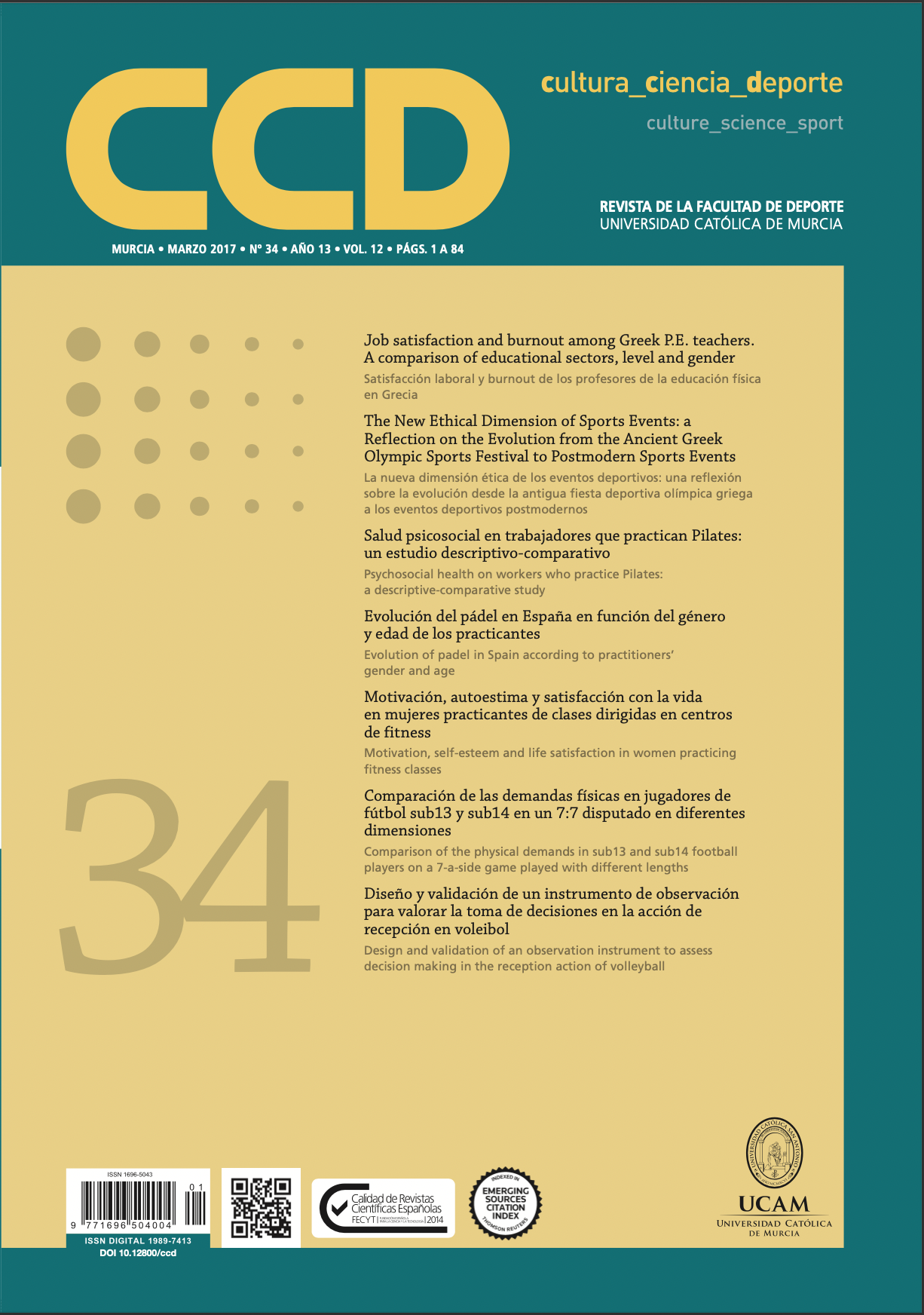Salud psicosocial en trabajadores que practican Pilates: un estudio descriptivo-comparativo. (Psychosocial health on workers who practice Pilates: a descriptive-comparative study).
DOI:
https://doi.org/10.12800/ccd.v12i34.829Abstract
Los efectos de la práctica del método Pilates sobre la salud psicosocial y laboral carecen de evidencia científica sólida. El objetivo principal del presente estudio fue describir los niveles de salud psicosocial de un grupo de trabajadores que se ejercitaba con la técnica Pilates. También se estudió la influencia del cargo laboral sobre variables psicosociales. 63 trabajadores de diferentes profesiones del sector servicios con una jornada laboral completa (47 mujeres y 16 hombres) participaron; de ellos 33 ya asistían a clases de Pilates una media semanal de 2.82 días y el resto de participantes no realizaba ninguna actividad físico-deportiva (sedentarios). Los resultados mostraron que el grupo Pilates registraba mayores niveles de estabilidad emocional y optimismo que el grupo sedentario en la medición 1. Además, se ha podido observar que, entre los practicantes de Pilates, los dirigentes presentan mayor control en el trabajo y sintomatología depresiva y menor estabilidad emocional que los empleados en ambas mediciones. En definitiva, pese a los numerosos beneficios que se le atribuyen a la práctica Pilates y el creciente interés existente entre los investigadores por analizar sus efectos sobre la salud, el presente estudio evidencia la ausencia de importantes diferencias en la salud psicosocial y laboral tras seis meses de seguimiento.
Palabras clave: Método Pilates, burnout, tensión laboral, optimismo, trabajo.
===
Abstract
The effects of practice of Pilates on psychosocial and occupational health, lack solid scientific evidence. The objective of this study was to describe the levels of psychosocial health of a group of workers who were exercising using the Pilates technique. The influence of the job role of Pilates on psychosocial variables was also studied. 63 full-time workers (47 women and 16 men) belonging to different service sectors participated; 33 of them attended Pilates classes an average of 2.82 days per week, everybody else (the sedentary group) did not perform any physical activity. The results showed that the Pilates group registered higher levels of emotional stability and optimism than the sedentary group in Measurement 1. Furthermore, it has been confirmed that among the Pilates practitioners, managers have more control at work and less depressive symptoms and emotional stability than employees in both measurements. In conclusion, despite the many benefits attributed to practice Pilates and the growing interest among researchers to analyse their effects on health, the present study evidenced the absence of significant differences in psychosocial and occupational health after six months follow up.
Key words: Pilates method, burnout, job strain, optimism, job.
Downloads
Published
How to Cite
Issue
Section
License
The authors who publish in this journal agree with the following terms:
- The authors retain the copyright and guarantee the journal the right to be the first publication of the work as well as licensed under a Creative Commons Attribution License that allows others to share the work with recognition of the authorship of the work and the initial publication in this journal.













